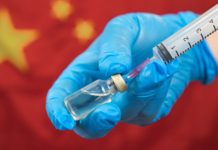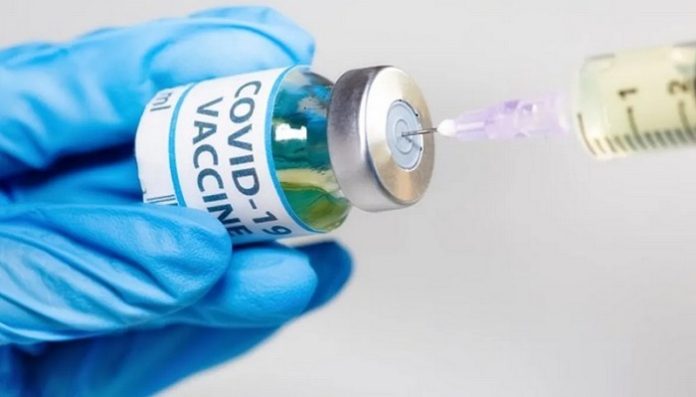A leading Chinese vaccine developer has applied for authorization to bring its Covid-19 shot to the market, seeking to get a jump on Western rivals as the race for a working inoculation against the virus enters the final stretch.
China National Biotec Group Co. has submitted an application to Chinese regulators, reported state media Xinhua Finance on Wednesday, citing parent company Sinopharm’s vice general manager Shi Shengyi. The application likely includes interim data from the company’s Phase III human testing conducted in the Middle East and South America.
Stocks related to Sinopharm Group, including its Hong Kong unit, surged on Wednesday after the news.
A CNBG spokeswoman said she had no further information when contacted by Bloomberg. Calls to Sinopharm Group went unanswered.
With the application, CNBG will likely become the first developer outside of Russia to see its shots made available for general public use, underscoring China’s determination to be a major player in supplying inoculations to countries around the world. Western drugmakers like Pfizer Inc. and AstraZeneca Plc are only at the stage of seeking authorization for emergency use of their shots, a status China granted to its developers months ago.
But unlike western frontrunners, CNBG has yet to release any public data on the efficacy of its shots in Phase III trials, making it difficult to compare its vaccines to others, or estimate how quickly it is likely to receive approval.
The regulator will now review data from CNBG’s Phase I and II trials, plus interim data from its Phase III trials, which Chairman Yang Xiaoming said last week the company has just started un-blinding. China’s drug regulator, the National Medical Products Administration, did not immediately respond to requests for comment.
The vaccine race has taken on vital importance as countries look to more definitively re-open their economies and stem a pandemic that has sickened more than 59 million. Inoculations are seen as the best hope as a fresh wave of infections is forcing nations to reintroduce lockdowns and other restrictions.
A state-owned drugmaker that has a dominant share of China’s vaccine market, CNBG in April was among the world’s first to push experimental shots to the crucial final stage of human testing. The company’s research institutes developed two shots using an inactivated version of the virus to stimulate immune response, an approach widely adopted by many of the existing vaccines used around the world.
Such vaccines have the advantage of easier storage and distribution as they don’t need to be frozen — unlike the experimental mRNA vaccines being developed by Pfizer and Moderna Inc. CNBG’s shots can be stored at normal refrigerator temperatures, making access for rural areas and developing countries more likely.
CNBG has vaccine supply agreements with several developing countries including Malaysia, Brazil, Pakistan and the United Arab Emirates, according to public reports compiled by Bloomberg. Leading Western developers like AstraZeneca and Pfizer have inked agreements with far more countries.
Despite the fact that the vaccines haven’t yet received regulatory approval for widespread use, doses have already been given to hundreds of thousands of people in China under an emergency-use program. That has raised concern among scientists of potential risks in using shots whose safety has yet to be thoroughly studied.
CNBG has said that its phase III trials — involving more than 50,000 people in countries from Argentina to Egypt — have been progressing smoothly, and it has not received any reports of serious adverse events.
Safety has become a major concern as drugmakers compress the vaccine development process from years to a matter of months. AstraZeneca and Johnson & Johnson paused their trials after a participant developed an unexplained illness. Another Chinese frontrunner, Sinovac Biotech Ltd., also saw its trial briefly halted in Brazil after a participant died. All three trials resumed after investigators found no evidence that the events were caused by the vaccines.
Pfizer said this month that the shot it co-developed with BioNTech has a protection rate of more than 90%. This high level of efficacy was also seen in Moderna’s shots, which use a similar mRNA technology. AstraZeneca’s vaccine, a viral vector developed with the University of Oxford, stopped an average of 70% of participants from falling ill, an early analysis showed.






















